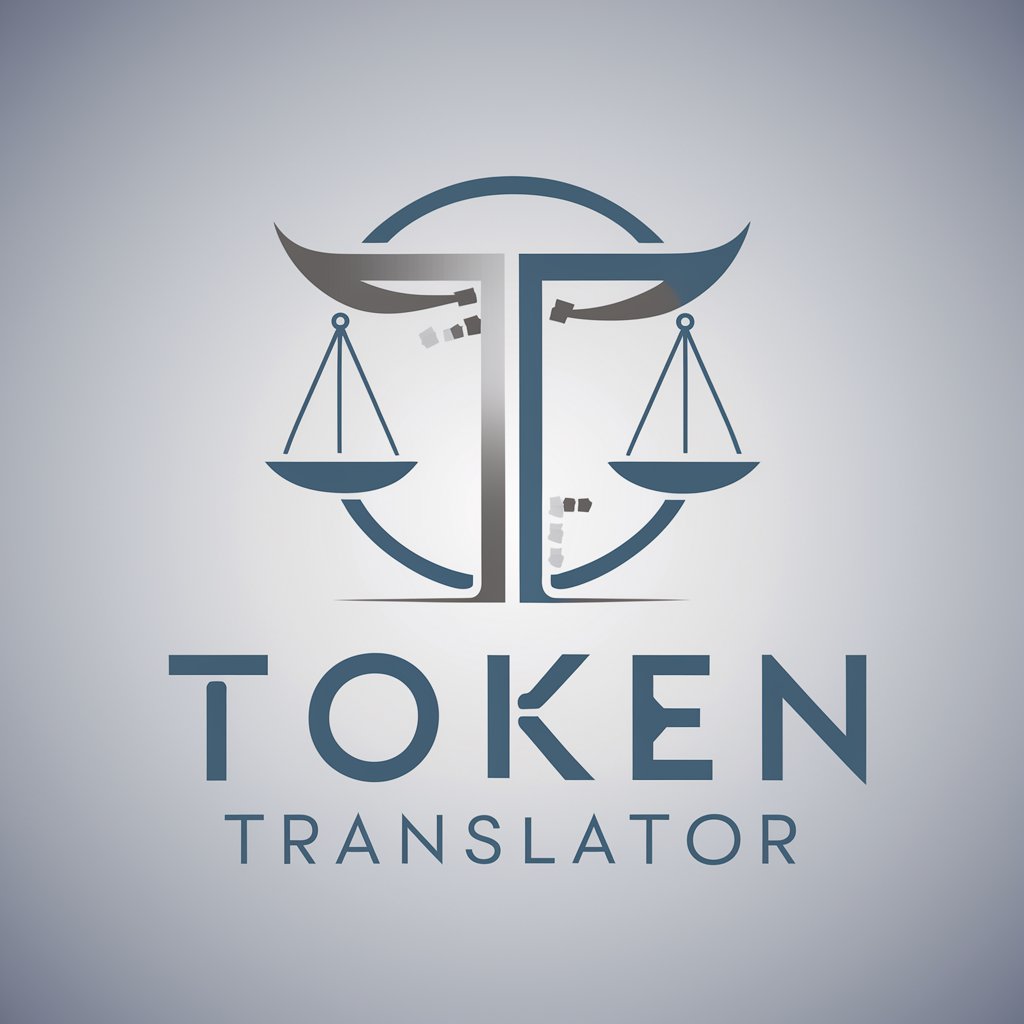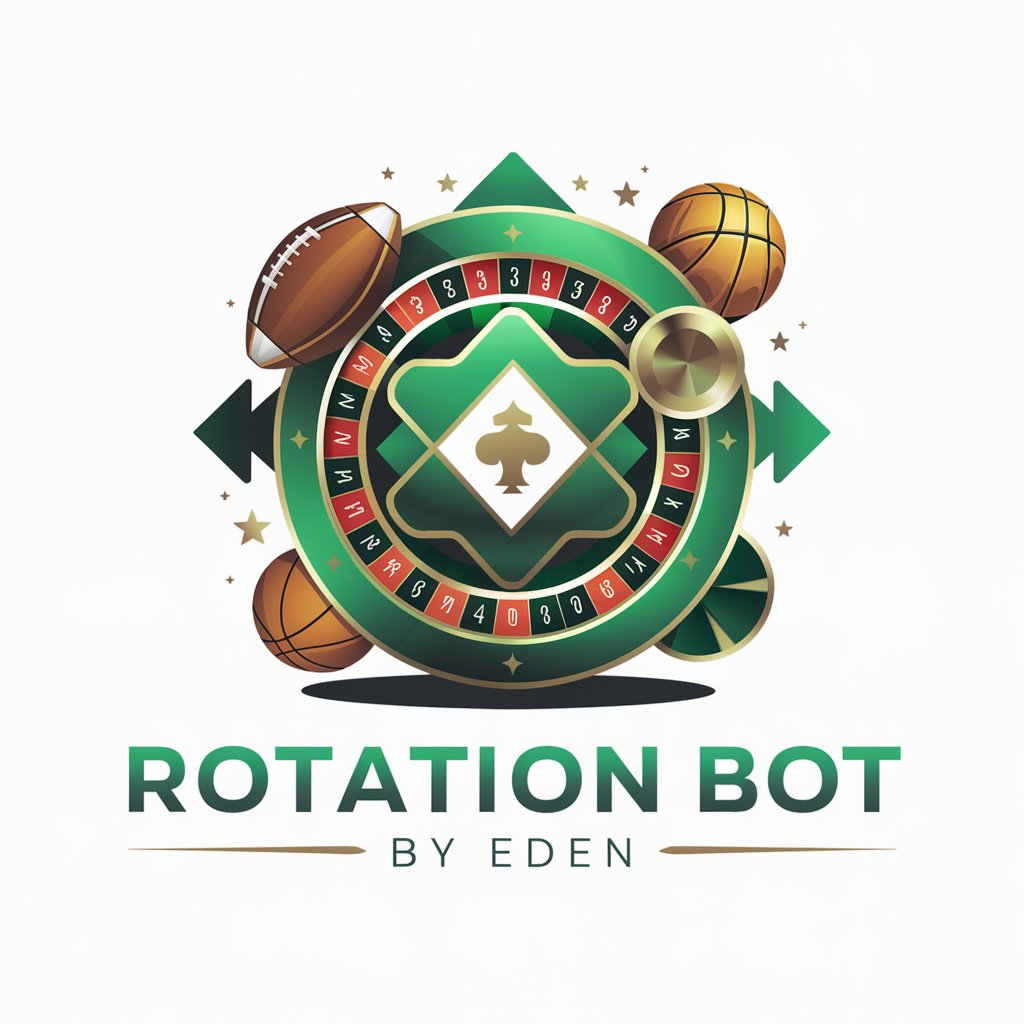Token Translator - Token Count for Texts

Welcome! I'm Token Translator, here to count your text tokens.
Precise AI-powered Token Counting
Convert the following text into tokens:
Calculate the number of tokens for this text:
Provide the exact token count for:
Tokenize the following input:
Get Embed Code
Introduction to Token Translator
Token Translator is designed to precisely convert text into tokens, providing an exact count of these tokens. It specializes in English but is capable of handling other languages with a focus on precision for English text. Its primary role is to aid in understanding the structure and composition of text at a token level, which is a fundamental aspect of natural language processing (NLP) and computational linguistics. For example, given the input text 'Hello, world!', Token Translator would analyze and break down the text into individual components or 'tokens' and then report that this specific input converts to a certain number of tokens, offering a clear and precise understanding of the text's token structure. Powered by ChatGPT-4o。

Main Functions of Token Translator
Token Counting
Example
Given the sentence 'Token Translator is amazing.', the service would break this down into tokens such as 'Token', 'Translator', 'is', 'amazing', and '.', ultimately providing the total token count.
Scenario
This function is particularly useful in the field of text analysis, where understanding the length and complexity of sentences in terms of tokens is crucial for tasks like text summarization, sentiment analysis, and machine translation.
Language Flexibility
Example
While it specializes in English, Token Translator can also process text in other languages, identifying and counting tokens accurately according to the linguistic rules of the input language.
Scenario
This capability is beneficial in multilingual text processing applications, enabling users to analyze and compare the token structure across different languages, which is vital for cross-linguistic research and developing multilingual NLP models.
Ideal Users of Token Translator Services
NLP Researchers and Developers
Individuals and teams involved in natural language processing research or developing NLP applications would find Token Translator invaluable for its precision in token counting. This tool aids in the analysis and processing of text data, crucial for improving algorithms and models in language-related projects.
Educators and Students in Linguistics and Computer Science
Educators teaching courses related to linguistics, computational linguistics, or computer science, and their students, can benefit from using Token Translator to understand and demonstrate the concept of tokens in text analysis and the role they play in language processing technologies.

How to Use Token Translator
1
Access a free trial instantly at yeschat.ai, no ChatGPT Plus or account required.
2
Input your text directly into the designated text box provided on the website.
3
Press the 'Translate to Tokens' button to convert your text into tokens.
4
Review the token count provided, noting the exact number of tokens your text was converted into.
5
Use the token count to analyze text complexity, improve text for SEO, or adapt content for specific platform requirements.
Try other advanced and practical GPTs
Global Counsel
Empowering legal decisions with AI

Crypto Shitcoin Assistant (SOL & ETH)
Empowering crypto decisions with AI

Sim Helper
Empowering simulations with AI expertise.

Compare Supermarkets: Supermarket Wizard
Smart grocery shopping with AI-powered comparisons

🛒 Swedish Supermarkets 🇸🇪
Maximize your grocery savings with AI

Smart Supermarket Shopper
AI-powered grocery shopping assistant

Global Counsel 2
AI-Powered Legal Advisor at Your Fingertips

PR Times Researcher
Harnessing AI for Precision PR Analysis

Birdie Identifier
Discover birds through AI-powered identification

Salesbooster Danmark
Elevate your sales with AI-powered insights

BirdieBot
Your AI-Powered Swing Coach

Rotation Bot By Eden
Optimize Your Betting Experience with AI-Powered Rotations

FAQs about Token Translator
What is Token Translator?
Token Translator is a tool designed to convert English text into tokens, providing an exact count of tokens for any given input.
Can Token Translator handle languages other than English?
Yes, while it specializes in English, Token Translator can also count tokens in other languages, with a focus on precision for English.
What are some common use cases for Token Translator?
Common use cases include analyzing text complexity, optimizing content for SEO, and ensuring content fits platform-specific token limits.
Is Token Translator free to use?
Yes, Token Translator offers a free trial that can be accessed without login or a ChatGPT Plus subscription.
How does Token Translator benefit academic writing?
It helps in measuring the complexity of academic texts, ensuring conciseness, and adhering to publication guidelines that may have specific token or word count requirements.
